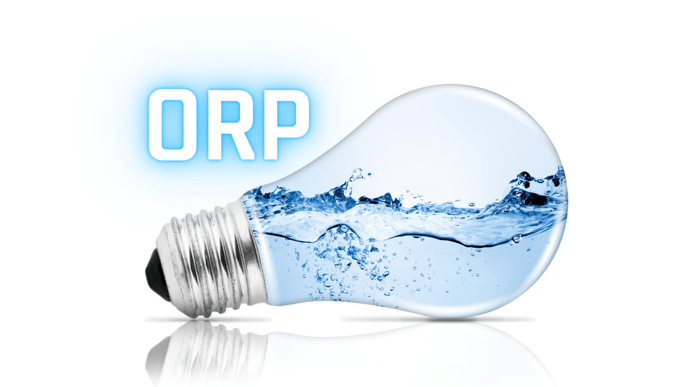What is ORP suppression in saltwater pools?
Saltwater chlorine generators (SWGs) tend to suppress ORP when they are actively generating chlorine.
While this has not been proven definitively, the most likely explanation for ORP suppression is that ORP is suppressed by the hydrogen gas (H2) that is created by the salt chlorine generator. A small amount of this hydrogen gas dissolves (it's not very soluble), and that dissolved hydrogen interferes with the ORP probe.
According to some ORP probe manufacturers we spoke with, for some reason, Hydrogen seems to have an affinity for the platinum tip of ORP probes. There are also gold-tipped probes that are a bit less susceptible, but Hydrogen is attracted to them too.
These manufacturers recommend a chlorine PPM probe to direct SWG chlorine production, rather than ORP alone. 
There is a clear trend that ORP readings decrease when salt systems are on. Oddly enough, it's not on every salt pool, just most of them. Our theory on that is that pools with more aeration and water features (vanishing edges, spillways, bubblers, sprayers, etc.) encourage more off-gassing of CO2 and hydrogen.
ORP is dependent upon water temperature, pH, and CYA
Apart from Hydrogen gas interfering with the probe, ORP itself actually does get suppressed by other factors. ORP is dependent upon water temperature, pH, CYA, and specifically HOCl levels.
pH impacts this even when CYA is in the water, though the percentage of HOCl is much lower in stabilized pools. pH impacts ORP regardless of whether or not CYA is in the water, due to an excess hydrogen ion. We will write more detail on this in a future blog article with more in-depth research and cited sources.